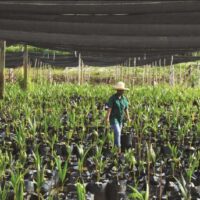The book also highlights a key difference between ‘moonshotters’ and ‘100 per centers’.
Moonshotters are those who take bold action and they are the ones who make real progress. 100 per centers want to have everything figured out before they commit to an initiative and therefore never achieve anything.
The book, which is subtitled Lessons of Vision, Courage, and Grit from the CEOs Who Dared to Build a Better World, cites stories and insights from impactful CEOs at a range of multinational organizations including Adidas, Maersk, Heineken, Duke Energy, Natura &Co, Mahindra Steel and Salesforce.
And it debunks the myth that sustainability is at odds with profitability and shows how action on sustainability can be a source of competitive advantage.
Progressive companies can reduce costs and increase revenues, and sustainability therefore needs to be built into every aspect of the business – including the annual budget process, strategic planning, and leadership development, Murphy said.
However, it is often best to start off with small projects that demonstrate the return on investment in order to win the argument for funding, he said.
Choosing one or two areas where you can make progress over the next year can also be a useful approach, rather than setting grand objectives for the next 30 years. “Don’t try to solve everything at once,” he said.
KPIs can be helpful in making the business case for sustainability initiatives to CFOs, but it is important to keep these simple and consistent over time, he added.
Making progress can sometimes be hard, so grit and determination are often required. “It is not always easy win-wins,” Murphy noted.
A pragmatic approach is therefore sometimes necessary. Progressive energy companies understand that fossil fuels will continue to be used for several decades, but are using the profits from these to invest in renewable energy sources, he said.









 Audio available
Audio available



